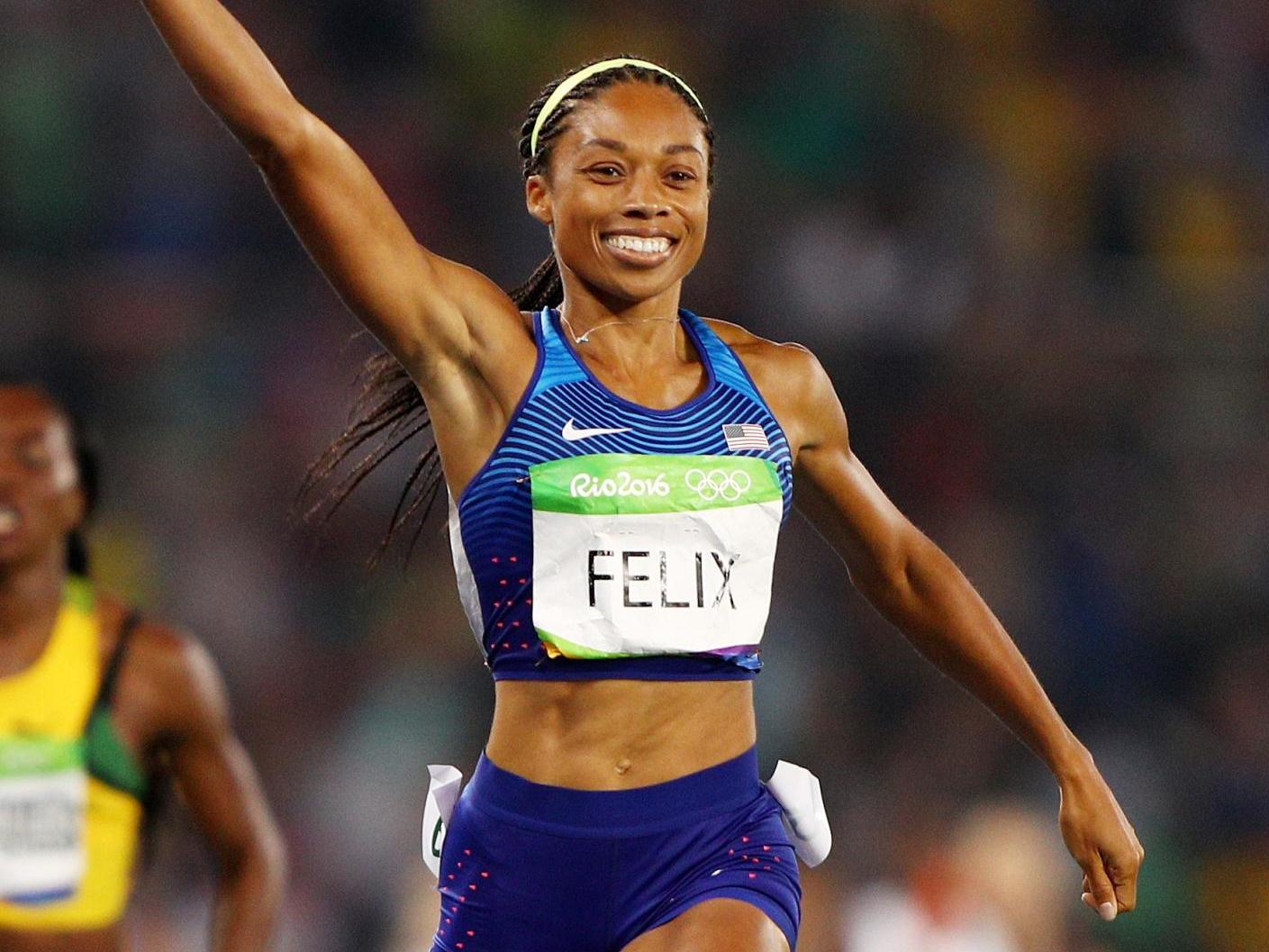Olympic athlete Allyson Felix says Nike wanted to pay her 70% less after giving birth
'Pregnancy can and should be able to be part of a thriving professional athletic career'

Your support helps us to tell the story
From reproductive rights to climate change to Big Tech, The Independent is on the ground when the story is developing. Whether it's investigating the financials of Elon Musk's pro-Trump PAC or producing our latest documentary, 'The A Word', which shines a light on the American women fighting for reproductive rights, we know how important it is to parse out the facts from the messaging.
At such a critical moment in US history, we need reporters on the ground. Your donation allows us to keep sending journalists to speak to both sides of the story.
The Independent is trusted by Americans across the entire political spectrum. And unlike many other quality news outlets, we choose not to lock Americans out of our reporting and analysis with paywalls. We believe quality journalism should be available to everyone, paid for by those who can afford it.
Your support makes all the difference.Olympic athlete Allyson Felix has said that Nike wanted to pay her 70 per cent less for a contract after she became a mother.
In November 2018, Felix gave birth to her first child, a daughter called Camryn.
In an op-ed published in The New York Times, the professional sprinter says she decided to start a family in 2018 knowing that it could be “the kiss of death” for her career.
“It was a terrifying time for me because I was negotiating a renewal of my Nike contract, which had ended in December 2017,” Felix writes.
The 33-year-old explains that she felt under pressure to return to work as soon as possible after childbirth, despite having to undergo an emergency C-section at 32 weeks due to severe pre-eclampsia.
Felix states that despite her athletic achievements – which include nine Olympic medals – Nike wanted to pay her 70 per cent less than before.
“If that’s what they think I’m worth now, I accept that,” she writes.
However, when Felix asked Nike to “contractually guarantee” not to punish her if she didn’t perform as well following childbirth, the sports company “declined”.
“We’ve been at a standstill ever since,” the athlete adds.
Felix explains that she wants to change the “status quo” surrounding pregnancy, and alter the way in which female athletes are treated within the sports industry.
“Pregnancy is not messing up; for women it can and should be able to be part of a thriving professional athletic career, as my teammates have shown and I hope to show too,” the Olympian says. “And I dream of a day when we don’t have to fight in order to try.”
Several people have praised Felix for taking a stand against the way in which female athletes are treated after giving birth.
“I’m a long-time fan! Today, I was deeply inspired by your bravery and advocacy. Thank you for paving the way for other female athletes,” one person tweeted.
“You are awesome. Thanks for sticking your neck out for the next generation,” another added.
Last week, Nike announced it had reviewed its pay after several female athletes revealed they suffered cuts due to pregnancy.
Several US runners, including Alysia Montaño, Phoebe Wright and Kara Goucher, took part in a video for The New York Times in which they accused the brand’s sponsorship deals of discriminating against female athletes.
In response to the video, a Nike spokesperson said: "We recognised that there was an inconsistency in our approach across different sports and in 2018 we standardised our approach across all sports so that no female athlete is penalised financially for pregnancy."
A few days later, Nike released a statement outlining its commitment to "championing, celebrating and supporting female athletes".
“Last year we standardised our approach across all sports to support our female athletes during pregnancy, but we recognise we can go even further. Moving forward, our contracts for female athletes will include written terms that reinforce our policy,” the statement said.
“We want to make it clear today that we support women as they decide how to be both great mothers and great athletes. We recognise we can do more and that there is an important opportunity for the sports industry to evolve to support female athletes.”
In December, Felix opened up about her daughter’s premature arrival, saying that she felt “nervous and vulnerable” following the birth.
“Every day I sit with my daughter in the NICU and watch her fight. Every day she gets stronger and more beautiful,” she said.
The Independent has contacted Nike for comment.
Join our commenting forum
Join thought-provoking conversations, follow other Independent readers and see their replies
Comments